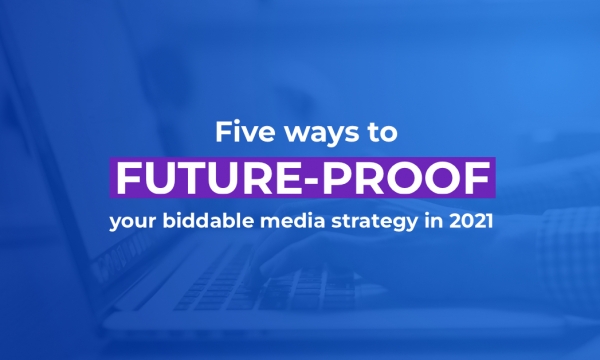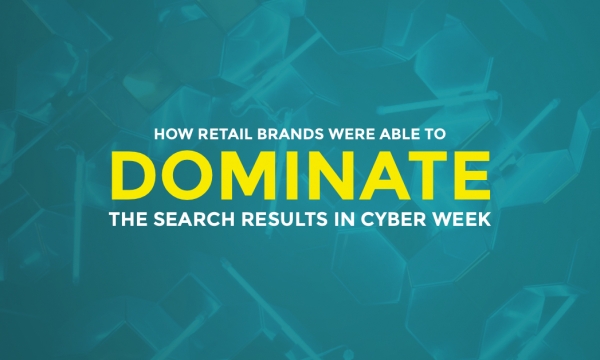The growth of automation and machine learning won’t make the roles of PPC managers obsolete. Instead, it will change them for the better.
Google Performance Max, which has been in testing since October 2020, is part of the search engine’s drive to bring greater levels of automation and machine learning to paid search. At the company’s most recent Livestream event at the end of May, it was announced that it was expanding the roll out of Performance Max to thousands of advertisers, with general availability coming later in 2021.
Performance Max represents Google’s latest attempt to create a “set and forget” approach to paid search where it is the algorithms, not PPC campaign managers, making the key decisions on who gets to see the ads, and when. Advertisers will hand over the ad copy, images, videos, landing pages and campaign goals, and simply let Google take it from there. It deals with the targeting, the campaign scheduling (for example, it will know not to display ads to drive store footfall at times when stores are closed) and the media selection across display networks (including YouTube, Discover and Gmail), based on your campaign goals.
The innovation is being sold as a way for smaller businesses and SME advertisers, who would typically lack the budget for a dedicated PPC campaign manager or agency management fees, to find a route into the Google Ads eco-system. But should advertisers, agencies and PPC managers themselves be worried?
In the algorithm we trust?
The first concern that many advertisers will understandably have is in the technology itself. Machine learning has clearly come a long way in a very short space of time, but are you prepared to entrust it with your ROI? And if the Chief Financial Officer starts asking some awkward questions about last month’s performance, can you get away with blaming the machine? Google has promised that manual inputs will be a part of Performance Max in the future, but will that be enough to allay people’s fear?
For many this will be a matter of personal persuasion but looking at instances where we have seen greater use of automation in biddable media, the results are promising. Throughout 2020, Stickyeyes tested dynamic search ads on a number of accounts across various sectors and, on every account where these DSAs were trialled, they outperformed traditional generic search ads. In some cases, they even outperformed brand and broad match modifier (BMM) campaigns.
As we move towards more of a ‘keywordless’ search environment, the role that automation plays is significant.
The role of the PPC manager can change for the better
The notion of increased automation and machine learning naturally creates a sense of fear about the role of PPC and biddable media campaign managers. If the algorithm is taking over, what does it mean for us?
It means that PPC managers – and PPC agencies – can spend much less time running the campaign, and much more time making them better. It means that they can spend less time on repetitive procedures and campaign setup, and much more time thinking about the experience that we deliver to the audiences that see and engage with our ads.
We can say this because we can look across the room at our colleagues in SEO, who have worked with the Google algorithm for much longer than we have, and consider how they have adapted as Google has caused their role to change. Like those in SEO, our role is to find ways to work with and influence the machine, rather than to fight it.
In a world where everything is automated is, in theory at least, potentially more equitable, it will be the elements that we can influence as humans that will make the most discernible different and that is where we should be focusing our efforts.
With Google’s algorithms doing the ‘heavy lifting’ of our campaigns, we have more time to work with our creative teams to improve the quality of our creative assets and help them stand out from the (now automated) crowd. We are free to spend more time thinking about how impactful our ads are visually and through the copy we use, rather than the minutia of keyword targeting.
If the algorithm is taking care of who sees our ad, we have more time to think about how those audiences go on to convert, improving our landing pages, user experience and conversion rates.
We can’t swim against the tide of machine learning and automation, but we can learn from our organic search colleagues and learn to work with that automation, think more creatively and create much better experiences for our audiences.
Google Performance Max alone won’t improve our ad effectiveness and our return on ad spend. There is still a lot of work to do to ensure that our brands are making the most of that ad spend and the resulting traffic – it’s just the nature of that work that will change.
Key Takeaways: How PPC Campaign Managers can make the difference
- Work with your creative team to provide high quality and up to date creative assets.
- Consider your main KPIs and audience motivators to create different variations of copy.
- Focus on UX to improve quality website signals to google and improve your CVR%.
- Improve your content, since this is often used by Google to help determine where you should show ads.
- Improve the quality of your first party data and segment it in new and interesting ways that match your business objectives. This will provide more robust signals for Google to optimise campaigns towards. Also ties into futureproofing for privacy changes.
- Improve any feed and product data since again this provides more signals to Google.



